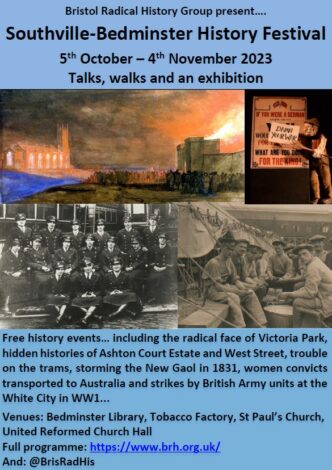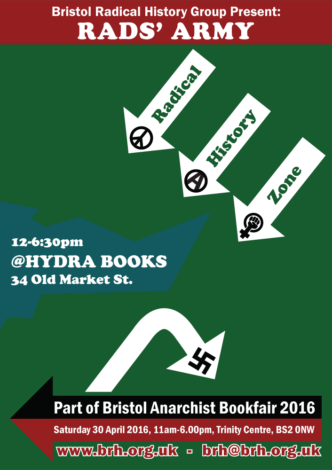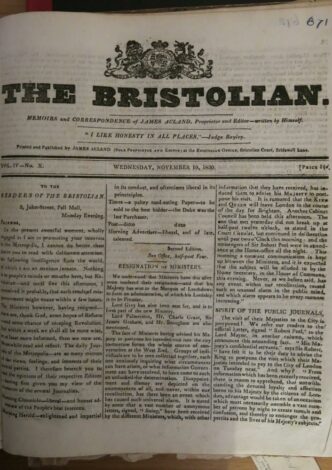In 1827, radical journalist James Acland launched the West Country’s first daily newspaper. He called it The BRISTOLIAN. Undercutting the advertising rates of existing weekly papers, conducting a lively letter column and breaking the law by publishing at one and a half pence without paying the newspaper stamp tax, Acland’s publication was a muck-raking popular radical paper for the working classes. The paper concentrated on exposing the abuses both of the unreformed Corporation which ran Bristol and of the Courts, and was spiced up with demands for an overhaul of the national political system.
The authorities responded by imprisoning Acland twice (in 1828 and 1829) for refusing to pay the stamp tax and for libel, but he would not be intimidated. He continued to expose the corruption and nepotism of Bristol’s ruling elite whilst engaging in diversity of campaigns from the abolition of slavery to the demand for decent unadulterated food for the working class. He left Bristol in 1831 to start causing trouble in Hull, but not before he had fanned the flames of popular revolt. Several months later the city exploded with the Reform Act riots which frightened the undemocratic wealthy elite targeted by the rioters and helped bring the vote to Britain.
This BRHG project involves detailed analysis of The Bristolian broadsheet in its various forms over the period as well as primary source research into James Acland and his time in Bristol. In particular, we are interested in the popular meetings, campaigns and agitation that Acland and his supporters engaged in prior to the riot of October 1831. We are assembling a catalogued scanned database[ 1 ] of The Bristolian and hope to make this available online as part of the project output.
If you are interested in participating in this project or have sources that maybe useful please contact us at brh@brh.org.uk.
Stuff linked to this project...
Events (3)

The Fight For Reform: RIOT1831! guided walk

The 1831 Bristol reform riot – a view from the southbank



